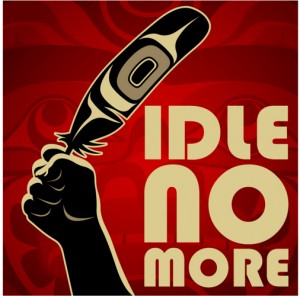This article, written by the Prince Arthur Herald details the #Idle No More movement which is intent on having Aboriginals participate in social media. More importantly it discusses the problem with social media, even ones aimed at facilitating contact among natives. The problem lies with the inequality of internet distribution in Canada. This means that approximately only 50% of aboriginal voices are being heard. This highlights the need to improve infrastructure to make the internet more of a neutral forum.
http://princearthurherald.com/en/author/soo-min-kim-katie-gilfillan-jordana-saab-brault-an
Part 5 of 5


